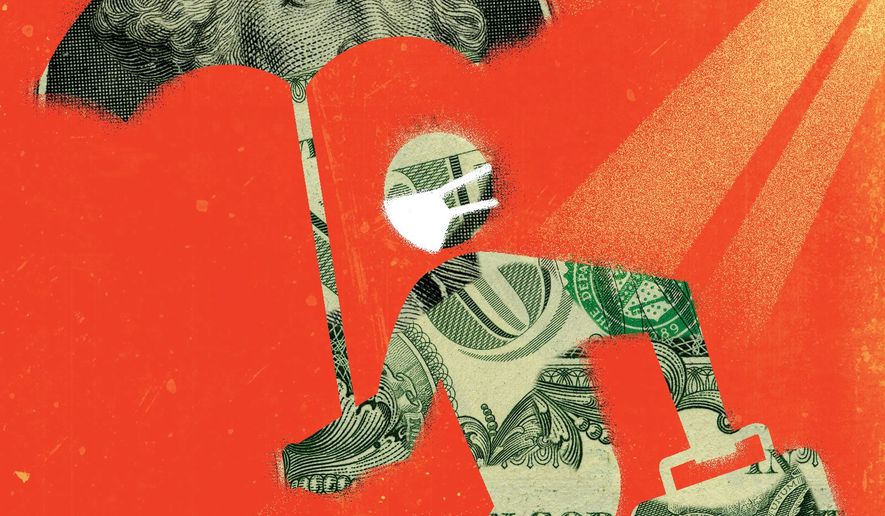OPINION:
According to reports this week, more than 150 workers either resigned or got fired from the Houston Methodist hospital system after refusing to get vaccinated against COVID-19. This is not the only health care organization facing this issue. Many hospitals and healthcare facilities across the country are requiring their employees to get vaccinations, with non-compliance resulting in jobs being lost.
This makes sense. If your business is in the health care world and you’re dealing with people that are sick and immuno-compromised, you should be taking every precaution reasonably possible to protect those patients. It’s what you do.
But what if you’re not in health care?
Financial services firm Morgan Stanley won’t fire employees for not getting vaccinated, but the firm did recently announce that it will bar unvaccinated workers from its office this summer so that it can “lift mask and physical distancing requirements”, a move that “follows similar actions by other financial giants.” A large number of colleges and universities are requiring their students and staff to get vaccinations if they want to return in the fall. Many other private and public employers are grappling with the issue.
So what about me and my small business? The advice I’ve been receiving has been varied.
“Companies can require drug tests, dress codes, morality contracts, etc. Why not vaccines?” writes one person on Twitter.
“What about your customers?” another tweeted at me. “Do they get a choice if a vaccinated or unvaccinated employee helps them?”
“Some jobs require you to be vaccinated, what’s the big deal?” says another. “In oil, for example, if you’re traveling to Africa, there are multiple vaccinations you need to get, before traveling.”
True, when I engaged in this debate on Twitter I suffered the rancor that is Twitter. But many people like those above emerged with very reasonable points of view. Getting everyone vaccinated would help to speed up the end of the pandemic. It would likely reduce off-days due to sickness. And, at least in the public eye, it makes you one of the good guys.
All that is fine. But with all due respect to the supporters of vaccination, I could care less if my employees get vaccinated. I do encourage them to because I also support getting vaccinated. I get my flu shots every year. I got the shingles one (ouch!). I’ve received both Pfizer jabs.
But in the end, I’m not their God. I’m not their dad. I’m just their employer.
I can’t tell them how to lead their lives. Getting vaccinated is a personal choice for my employees, and it’s really none of my business what my workers decide to do with their bodies, whether it’s getting a vaccine shot, smoking a pack of cigarettes a day, eating too much fried food, binge-drinking, engaging in unprotected sex, bungee jumping or participating in any other precarious behavior that could put themselves or others at risk and create a burden on our public health system.
Where do I draw the line here? Who am I to tell my employees what they can and can’t do? As long as they’re doing their job that’s all I really care about. Vaccines are everywhere now so employees can choose for themselves whether they get one. I did. But that’s me. You’re you. You choose.
The rules support me of course. Although there are OSHA and EEOC guidelines for providing a safe, healthy and non-discriminatory workplace there are certainly no requirements for employers to mandate vaccinations. The companies that have required vaccinations have their reasons that go beyond just making the world a better place. It’s not just about being “safe” and “protecting their workers.” It’s about getting on the right PR side of the issue and, of course, limiting potential financial liabilities.
The medical data is — as it’s been throughout the pandemic — conflicting, misleading, helpful, not helpful, confusing and ever-changing. For the most part it seems that there is a miniscule chance of a non-vaccinated person transmitting COVID-19 to a vaccinated person or the other way around. There is a miniscule chance that a younger person will get seriously ill or die from COVID-19. There is a miniscule chance that anyone will get seriously ill or die from COVID-19.
My financial and technology services firm has never required vaccinations in the past. So why should I start now? I won’t. Clearly the data is not strong enough to justify this requirement. Already I know too much about my employees’ private lives in order to provide them with insurance, paid time off and retirement funds. I don’t want to know any more. Neither do my employees.
• Gene Marks is a CPA and owner of The Marks Group, a technology and financial management consulting firm that specializes in small- and medium-sized companies.




Please read our comment policy before commenting.